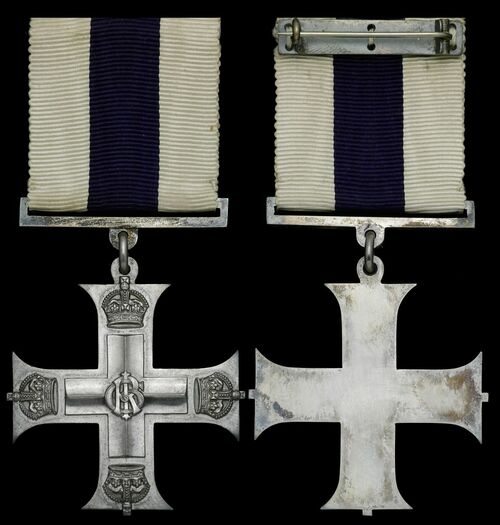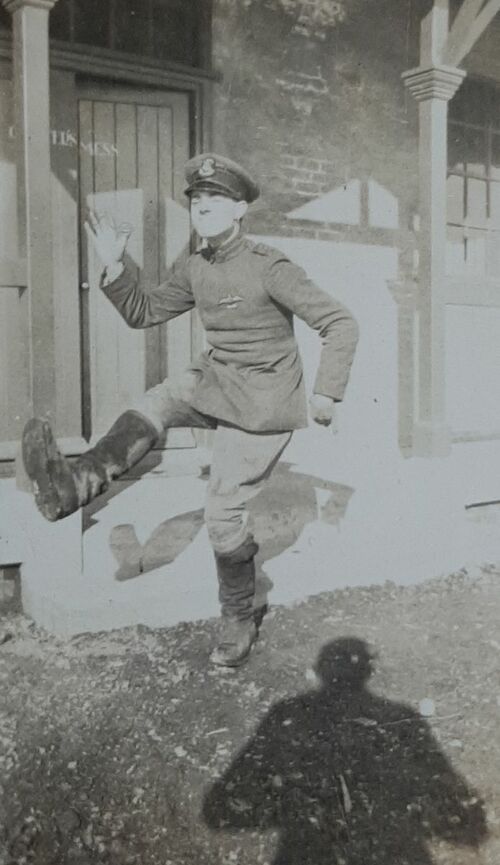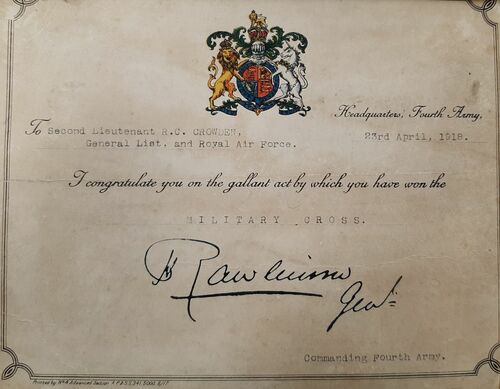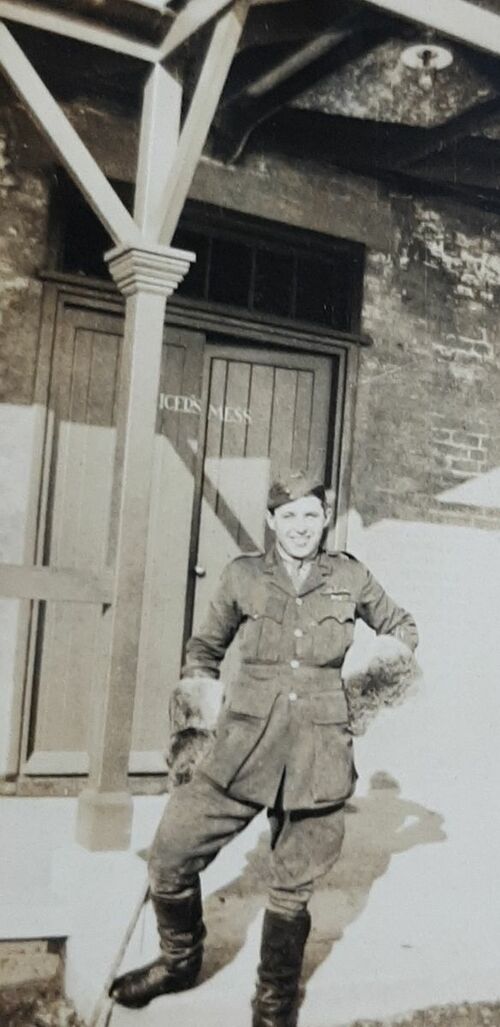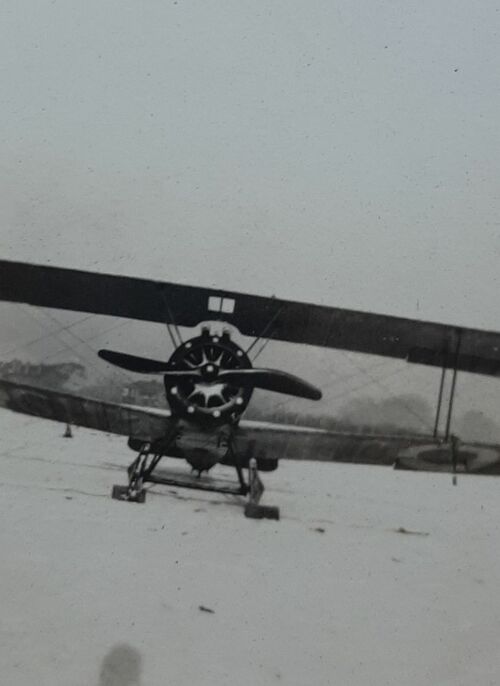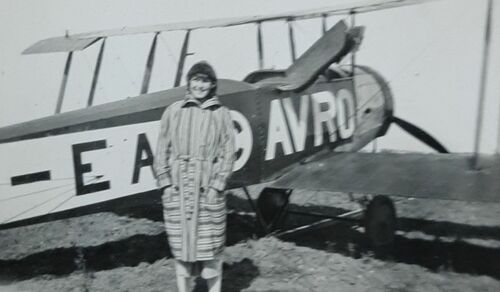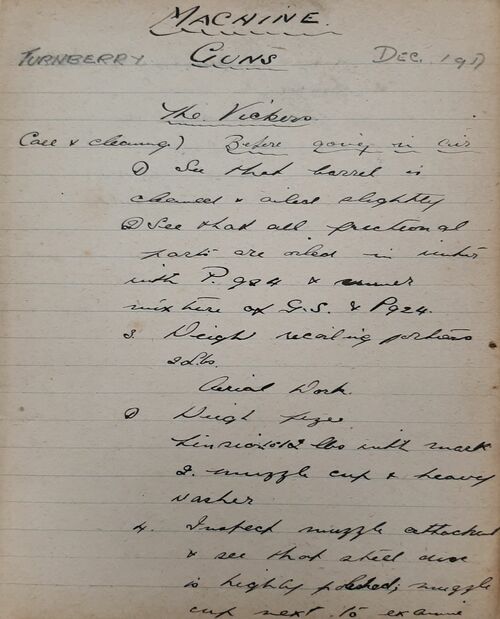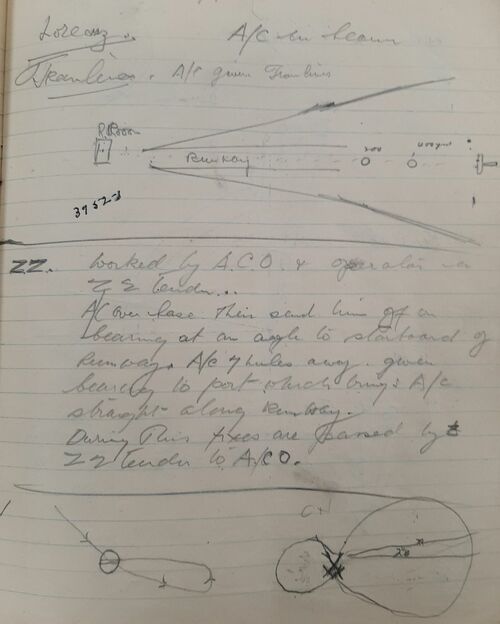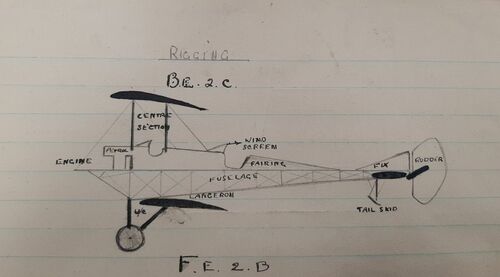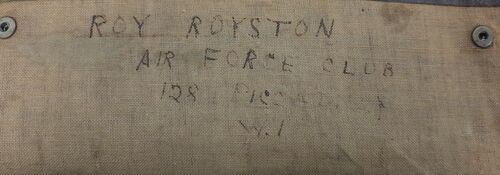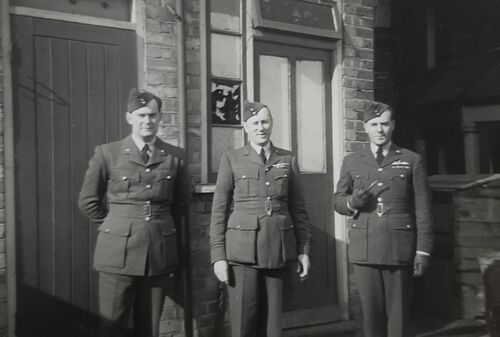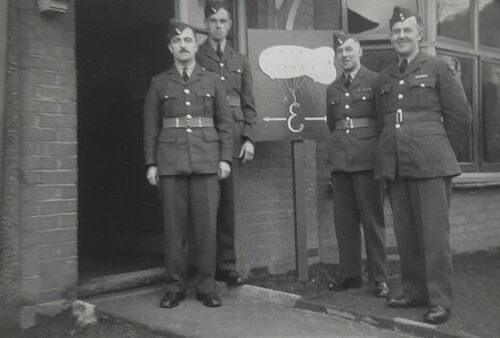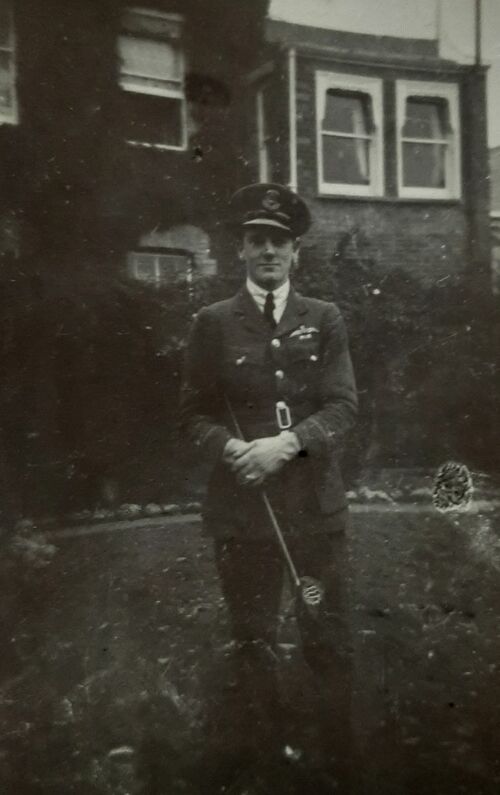Auction: 23111 - Orders, Decorations and Medals - e-Auction
Lot: 919
An exciting and unusual under-age pilot's 1918 M.C. awarded to Squadron Leader R. C. Crowden, Royal Air Force, late Royal Flying Corps, who began life as 'Roy Royston', a child actor and joined the R.F.C. under-age and won the Military Cross the following year
Putting his talents to good use during the Second World War as a member of the R.A.F. branch of E.N.S.A., he was to continue to work in the performing arts, with his final appearance in 1966 being the part of a Clergyman in the Hammer Horror film "The Plague of the Zombies"
Military Cross, G.V.R., unnamed as issued, in its fitted case of issue, sold together with an impressive archive of original material including certificate of award and a commission document dated to 1939, good very fine
Provenance:
Sotheby's September 1990, Lot 608.
M.C. London Gazette22 June 1918, the original citation states:
'For Conspicuous gallantry and devotion to duty during operations. Observing a column of enemy troops marching along a road, he descended to a very low altitude, bombed them, and threw the column into complete confusion. Later on the same day, he attacked and caused heavy casualties to enemy infantry who were advancing across country. On another occasion he attacked one of six enemy scouts and destroyed it. He showed great determination and a splendid offensive spirit.'
Roy Charles Crowden, also known by his stage name 'Roy Royston', was born at Mill Hill London on 5 April 1899, the son of Charles and Lilly Crowden of Hale Grove, Hendon. Educated at Lynton College he found fame as a child actor starting with the short silent film The Pony Who Paid the Rent. Continuing to act between 1912-1914 Crowden accrued a sizable body of work with his final film before the war One Summer's Day first broadcast in June 1917.
Enlisting with the Royal Flying Corps while still only seventeen, on 30 May 1917, he was soon commissioned 2nd Lieutenant and after a period of training sent to France to join No. 54 Squadron. Arriving in France in early March 1918 his first kill was less than a month later when he brought down a two-seater Rumpler near Caulaincourt on 22 March, and at the end of the month a Pflaz Scout near Warfusee. It is perhaps unsurprising that he was promoted Lieutenant the next month, on 1 April 1918. In his unpublished diary Crowden kept a record of his patrols and notable actions, written in a poorly-spelled but theatrical fashion which recounts his experiences. The light-hearted opening 'Clack! Clack! Clack!' finds itself undercut by the later entries:
'Did G.P. [General Patrol] and escort to DH4's on bombing raid to Busigny my engine went dud on the way. Hell of a scrap about 40 huns waiting for them 17 huns down most in flames. 5 of our squadron missing & 2 from 84 squadron (Sh**s) one from 5 naval. F*** the war.'
Heavy action during the Cambrai Offensive brought further kills and he ended the war with three confirmed and two unconfirmed enemies downed as well as one balloon. His aggression in the air and bravery at the helm of his Sopwith Camel was rewarded with the Military Cross - however Crowden appears to have become disenchanted with flying. He returned to his film career as soon as possible, with his next film Mr Wu coming out in 1919.
Straying further from film and closer to stage performances, in the 1930's Crowden formed a company with the likes of Leslie Henson and Richard Hearne - the latter proved to be particularly important on the outbreak of the Second World War when Crowden was commissioned into the Entertainments National Service Association. This organisation, founded by Henson and Basil Dean was intended to provide entertainment to troops in the form of shows, concerts and broadcasts. Unfortunately as the war spread the E.N.S.A. became increasingly overstretched leading to a drop-off in quality; the troops were able to bring some entertainment out of the situation, however, by gifting them the new title 'Every Night Something Awful'.
Crowden was later to join the Balloon Branch and was promoted Squadron Leader by 1943. Unfortunately he was forced to request the termination of his commission when his wife fell seriously ill; this was accepted and his final service with the Royal Air Force came to an end. Crowden's break with film continued after the war and he instead worked in the theatre. His swan-song was to be a movie, the Hammer Horror classic The Plague of the Zombies. He died at Kingston-on-Thames on 7 October 1976; sold together with copied research comprising service papers, Obituary and after-action reports as well as a London Gazette entry and a typed transcription of the recipient's diary as well as original material comprising:
i)
Several magazines relating to the career of Roy Royston.
ii)
A Brooklands 1910 flying card signed by Mr Charles Lane.
iii)
Collections of photographs from the recipient's time in service as well as several from his time in the performance industry.
iv)
Certificate of Qualifications as 1st Class Operation Pilot.
v)
Five diaries and work books containing technical schematics.
vi)
Work bag named to 'Roy Royston Air Force Club'.
vii)
Correspondence from the War Office.
viii)
Great War Particulars of Service card.
ix)
Elementary Training Squadron Card.
x)
Certificate of issue for the Military Cross.
xi)
Commissioning Document named to the recipient with the rank of Pilot Officer.
Subject to 20% VAT on Buyer’s Premium. For more information please view Terms and Conditions for Buyers.
Sold for
£850
Starting price
£320

